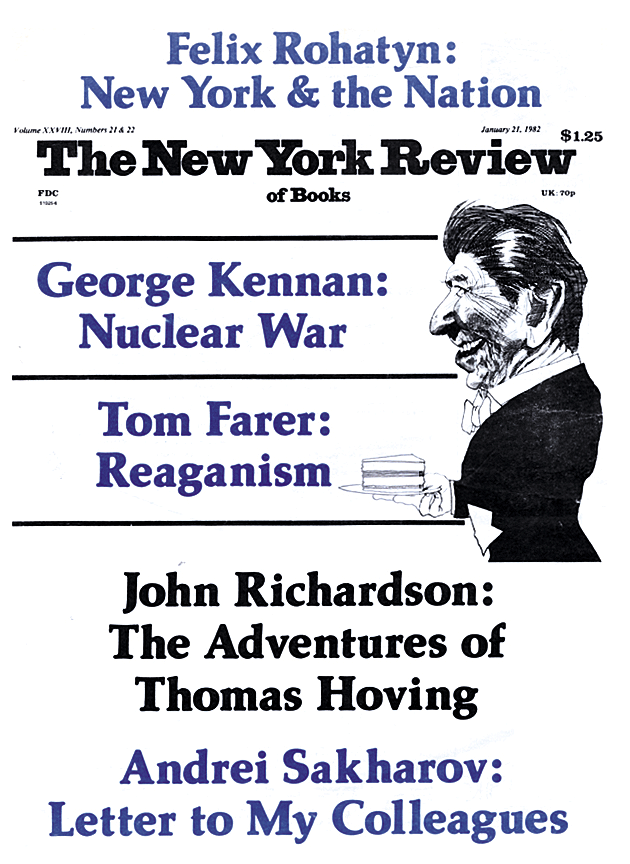The following statement by Michael Howard, Regius Professor of Modern History at Oxford, appeared in a letter to the London Times, November 3, 1981.
To link the need to preserve a stable balance of deterrence with the requirement to introduce the Pershing and cruise missiles into Europe, and to make acceptance of the latter a symbol of loyalty to the Alliance and resistance to Soviet blackmail, is to fall into the same trap as the unilateralists who maintain that the deployment of these weapons will make nuclear war more likely rather than less.
When the story of the TNF (theater nuclear forces) issue comes to be written it will bear a close family resemblance to that of the ill-fated MLF (multilateral force) of ten years ago. Both originated in the exaggerated importance attached by the United States government to the doubts expressed by a very small number of European specialists about the credibility of the American nuclear guarantee to Europe in the light of improvements in Soviet weapon technology, a concern which was quite wrongly believed to be widespread within the European defence community.
In an attempt to assuage these doubts the Pentagon came up with a technological solution for which there was no military requirement whatever but which would, they hoped, reassure those meticulous pedants who believed that, unless nuclear deterrence was precisely balanced at every level, it would no longer carry conviction.
Once the American proposals became official, their European partners felt that in loyalty they had to support them, even though many of them privately considered the whole project absurd. When eventually the United States government realised how grossly it had misjudged European opinion, and the Europeans realised that the Americans had no great enthusiasm for their own brainchild, the MLF project was belatedly allowed to die. None of us has slept any less easily in our beds as a result of its demise.
The MLF affair was a comedy of errors. The TNF could well be a tragedy. There is no consensus in the European defence community, and no sense among the European peoples as a whole, that the SS20s present a threat of a new order of magnitude. They are more accurate than the old SS4s and 5s, but, with warheads of such destructive powers, accuracy is of little significance. They remain a very small proportion of the enormous nuclear force that the Soviet Union is capable of launching against Western Europe if it so wished.
The belief of some strategic analysts that the Russians can only be deterred from attacking us by the installation of precisely matching systems—“ground-launched missiles must be matched by ground-launched missiles”—is politically naïve to the point of absurdity. The United States is “coupled” to Europe, not by one delivery system rather than another, but by a vast web of military installations and personnel, to say nothing of the innumerable economic, social, and financial links that tie us together into a single coherent system. To satisfy those pedantic analysts who require still further guarantees, the Americans, whose patience seems inexhaustible, have already allocated to NATO a submarine-based nuclear force of immense destructive power.
If all this is insufficient to deter the Soviet Union from a course that they are in any case likely to contemplate only in the very direst of extremities, what difference will be made by the installation of Pershings and cruise missiles, particularly if these remain under sole American control?
The true vulnerability of the West still lies where it always has, in the field of conventional armaments. The likelihood of the Soviet Union believing that they could launch a nuclear attack on Europe without suffering instant retaliation is, by any standards, utterly remote. That they might risk launching a massive conventional attack that could attain its objectives before the decision to use nuclear weapons could be reached at all is, alas, much more easily conceivable.
So long as the conventional balance remains so uneven, the Western strategy of relying on the first use of nuclear weapons to defend ourselves is not only morally dubious but politically and militarily incredible. But the responsibility for this strategy does not lie with the United States. It lies with the governments and peoples of Western Europe who have, for the last thirty years, refused to take the necessary measures to provide for their own conventional defense.
This Issue
January 21, 1982


